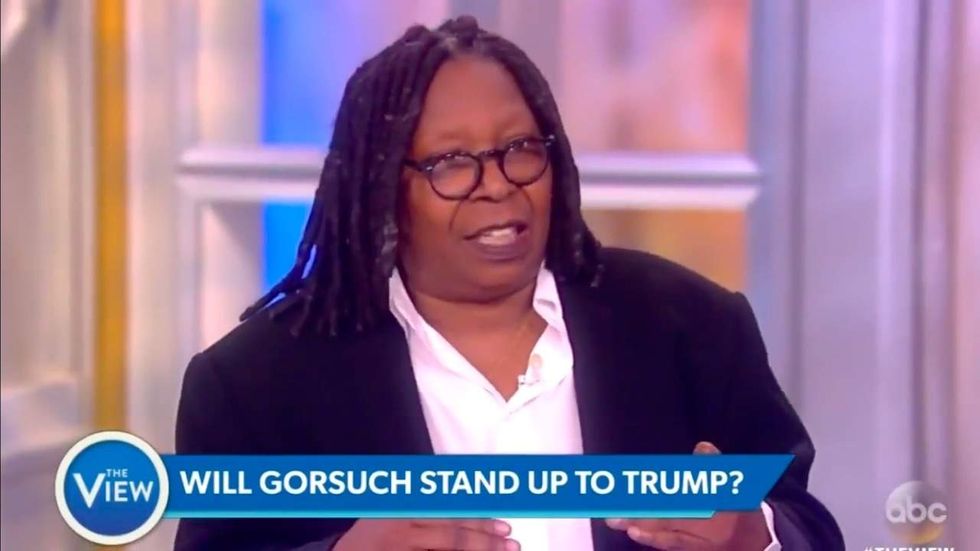
Image source: YouTube/ABC

Whoopi Goldberg, who last month suggested one can simultaneously be both pro-life and pro-abortion, said Thursday that, should President Donald Trump's Supreme Court pick be confirmed, "he can't" overturn Roe v. Wade.
Goldberg argued on ABC's "The View" that if Judge Neil Gorsuch "truly believes in the Constitution," he cannot rule against abortion because, in her view, it is "part of the Constitution now and he cannot overturn it."
This was the show co-host's reasoning:
In the Constitution, you know, people always say, 'Women are not talked about, they don't talk about women' — no. In the Constitution, talk about people, persons. But they do not talk about us [African Americans] because we were considered furniture, chattel. So where does that put us in the Constitution? What does that mean to us?So I always like to check, and I thought to myself, 'OK. He says he's a strict constitutionalist with its amendments,' and he — that's what he's about. So he can't touch — according to himself — Roe v. Wade.
The potential for Roe v. Wade, the 1973 landmark Supreme Court decision that legalized abortion, to be overturned was one of the left's key reasons to elect former Democratic presidential candidate Hillary Clinton.
When then-candidate Trump, a Republican, was asked about overturning Roe v. Wade during a presidential debate last year, he said it "will happen automatically in my opinion because I'm putting pro-life justices on the court."
It is important to note, though, that Trump would need to get two or three more conservative justices who were determined to overturn Roe v. Wade onto the Supreme Court and, even then, they'd have to be willing to go against decades of court precedent.
Nevertheless, Goldberg's argument is not necessarily correct.
There is a difference between a constitutional amendment and a ruling on how the Constitution is interpreted. Roe v. Wade was the latter.
In a 7-2 ruling, the high court determined that the 14th Amendment, under the right to privacy outlined in the due process clause, should be interpreted to protect a woman's decision to have an abortion.
But unlike Goldberg seemed to assert, overturning previous interpretations is actually not at all uncommon.
In fact, in 1986, the Supreme Court upheld sodomy laws, which criminalized same-sex relations, in its ruling on Bowers v. Hardwick. Later, in a 2003 landmark decision on Lawrence v. Texas, the high court overturned its previous ruling, making same-sex relations legal in every state.